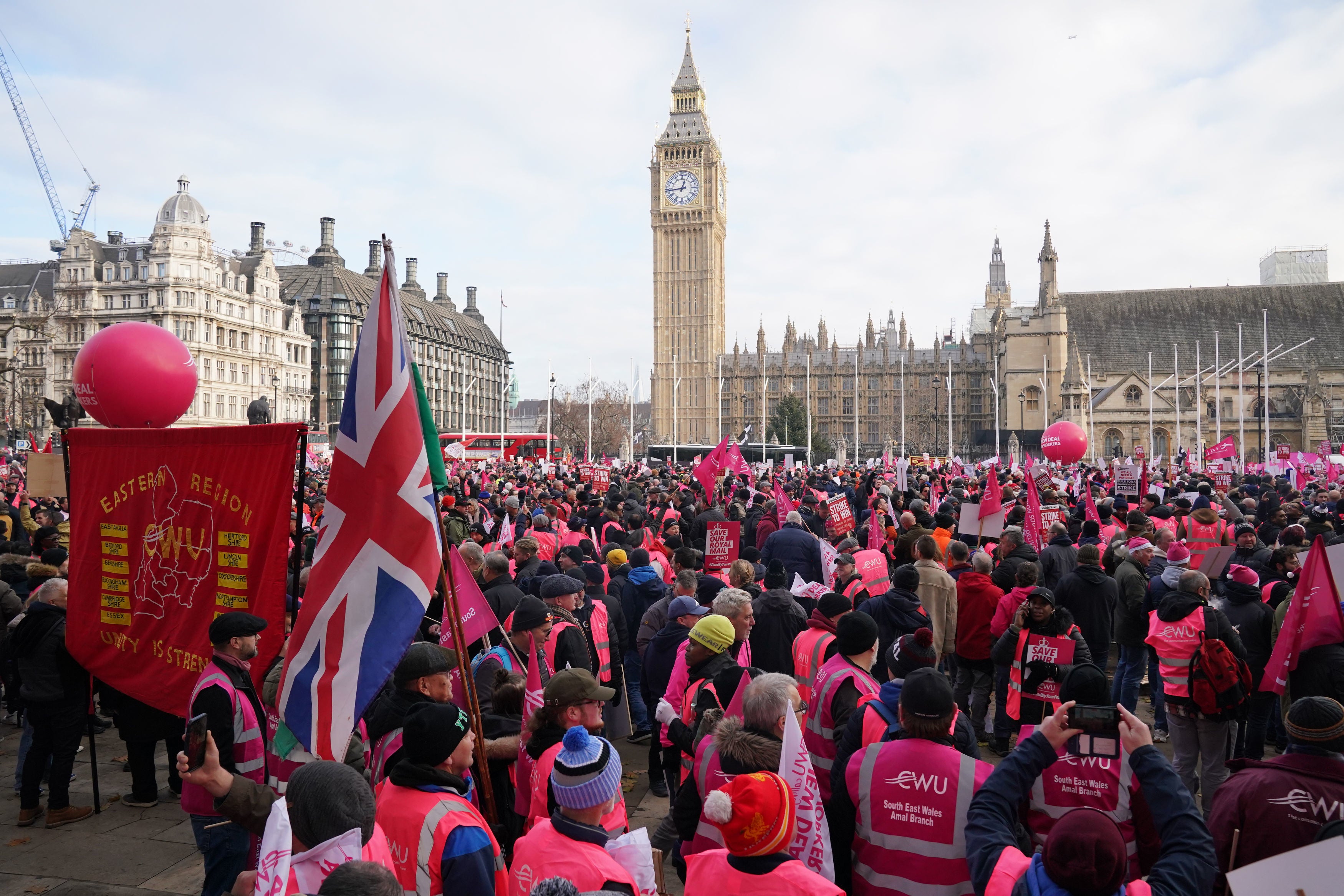News from a lifetime ago: opinion polls in the 1950s
Old Gallup surveys reveal a country beset by strikes, divided by royal scandal and pessimistic about the world, writes John Rentoul


I have been browsing old opinion polls again. One of my treasured possessions is a big two-volume compilation of Gallup polls in Great Britain from the start of opinion polling in 1937 until 1975. In the past week, I have got as far as 1958.
Britain was a different country then: 90 per cent of adults said they had gone to Sunday school as a child, and 71 per cent said they believed that Jesus Christ was the Son of God. Most people smoked in those days: 56 per cent compared with 13 per cent today; and more people said that they didn’t “use alcoholic beverages” (in the terminology of the time): 32 per cent compared with 20 per cent now.
Yet it is often the similarities that stand out. In 1958 there were a lot of questions about whether the “railwaymen” were justified in their demands for higher wages: 63 per cent said yes and 20 per cent no. “If large-scale strikes should arise,” Gallup asked which party could handle the situation best, and found that Labour was favoured by 37 per cent to 29 per cent for the Conservative government, with a large proportion saying that they didn’t know.
On the other hand, the public took a restrictive view of the right to strike. Given three options, only 27 per cent agreed that “the right to strike is one of the essential freedoms of workers in a democracy”.
The most popular option was to impose conditions: 42 per cent said that “workers should only be allowed to strike when arbitration has failed to bring about an agreement acceptable to the workers”. A further 24 per cent said that “strikes should be made illegal and pay disputes should be referred to compulsory arbitration”. Arbitration has fallen out of fashion, but it would be interesting to see how attitudes have shifted on the principle of the right to strike today.
The mid-1950s also seemed to be just as agog about royal stories as we are today. In 1955, 92 per cent of Gallup’s respondents had “heard or read about” what the pollsters coyly called “the discussion concerning Princess Margaret and Group Captain Townsend”. The Queen’s younger sister had had an affair with Peter Townsend, who divorced his wife and proposed to her.
Public opinion was divided over whether the newspapers should write about “these things”: 40 per cent said they should not, at all; 33 per cent said they “should, if done properly”; and only 15 per cent said they “should” without qualification.
At the same time, the country was coming to terms with a big change in its status in the world, possibly comparable to Brexit, after what Gallup called “the Suez question”. After the British government was forced by the US to cease fire and to prepare to withdraw from Egypt, public opinion remained supportive of Anthony Eden: 53 per cent agreed with the way he “has handled the Middle East situation”, and 64 per cent thought he would stay on as prime minister; only 16 per cent thought he would resign.
Eden denied in parliament the following month that he had colluded with Israel and France over the invasion, which was untrue, and then resigned, ostensibly on health grounds. But even a year later, in October 1957, more people said that, “looking back on Suez”, the British were “right” to take military action (48 per cent) than said “wrong” (32 per cent).
Even so, the crisis had an effect on British confidence abroad, and when it was first asked whether Britain should join “the European Common Market scheme”, in September 1957 – the Treaty of Rome was signed in March – more said “should” (38 per cent) than “should not” (20 per cent), although 42 per cent didn’t know.
To keep up to speed with all the latest opinions and comment, sign up to our free weekly Voices Dispatches newsletter by clicking here
The launch by the Soviet Union of Sputnik, the first satellite, in October 1957, induced a pessimism not just about Britain’s future but that of the West. Asked in December, “Who would you say is winning the Cold War: Russia or the West?”, 36 per cent said “Russia”, 9 per cent “the West”, 28 per cent “neither” and 27 per cent “don’t know”.
In many ways, though, Eden was the last of an era, and Harold Macmillan, although he was the last prime minister to have been born in the 19th century, was a more recognisably modern leader.
One controversy in 1955 seems truly archaic. Gallup asked: “It is forbidden to discuss a question on the air [radio or TV] during the fortnight before it comes up in parliament. Do you think that this is a good rule or a bad rule?” More people thought it was “bad” (45 per cent) than “good” (34 per cent), but Eden defended the rule in parliament the following month. He went further, advising MPs not to “regard [look at] newspapers when they are discussing what they are going to say in this House”.
The 14-day rule was only abandoned at the end of 1957, when Macmillan said that the government had received assurances from the broadcasters that “they will continue to act in a way which does not derogate from the primacy of parliament as the forum for debating the affairs of the nation”.
In that respect at least, the past is not just another country, but another country a long time ago in a galaxy far, far away.






Join our commenting forum
Join thought-provoking conversations, follow other Independent readers and see their replies
0Comments